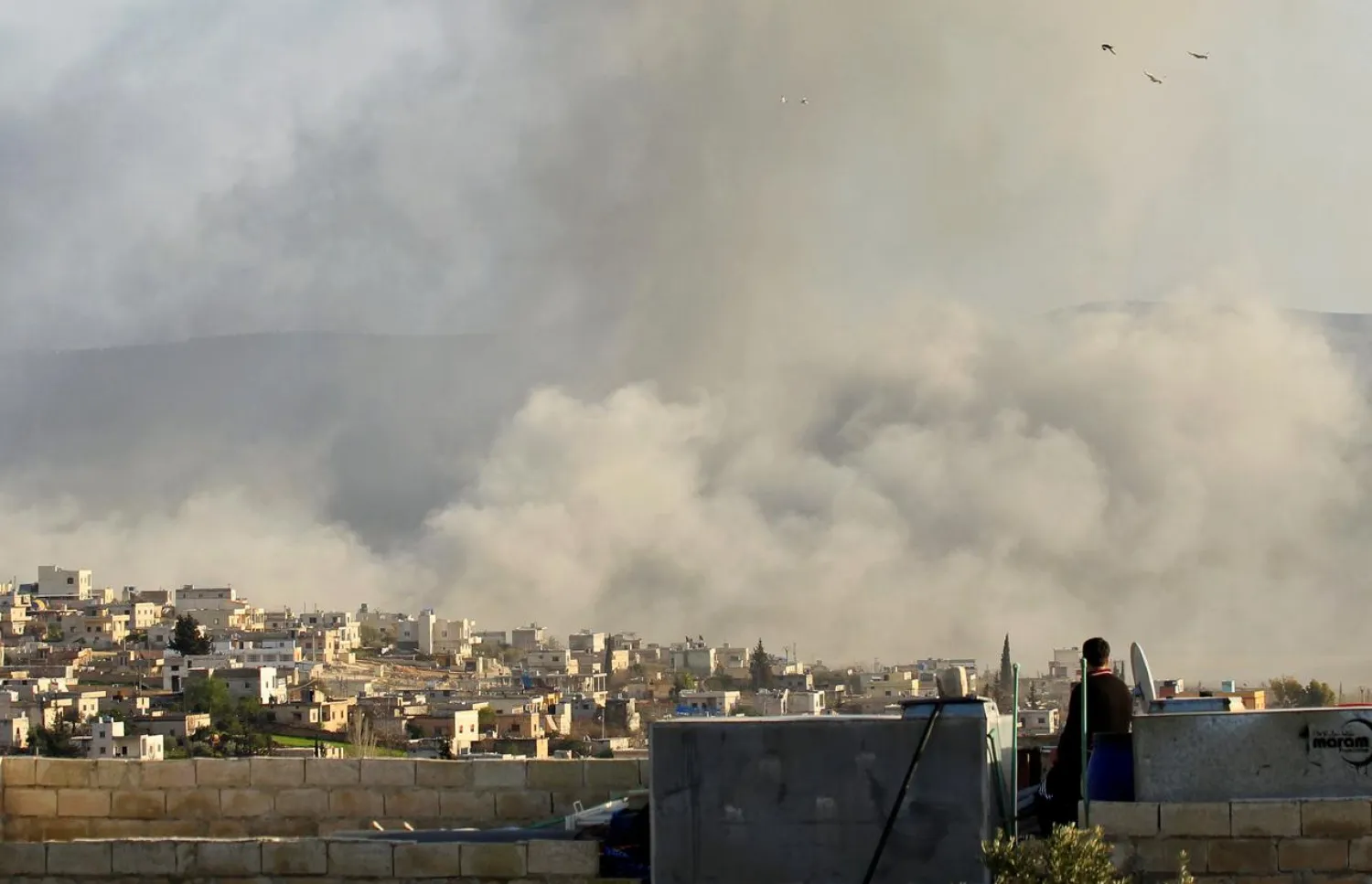A Russian bomb-laden drone has killed four and wounded two Hay’at Tahrir al-Sham (HTS) militants in southern Idlib in northwestern Syria. Meanwhile, a Syrian regime trooper was killed by Syrian opposition sniper fire near the Latakia countryside.
“Four members of HTS were killed and two others wounded, on the evening of Sunday, October 3, when a Russian drone loaded with explosive materials and equipped with a parachute exploded inside one of the military headquarters of HTS in Al-Ruwaiha area, south of Idlib,” said Abu Amin, an HTS official.
Abu Amin noted that this is the first time that Russian and regime forces use this type of explosive (suicide) drones and in the southern countryside of Idlib.
According to the HTS official, deploying such drones aims primarily to cause the largest number of deaths among the opposition factions. More so, they are used to capture many images and spot Syrian opposition deployment centers.
After they send over images to a command center in Jabal al-Zawiya, the drones are detonated remotely by Russian soldiers.
Abu Amin pointed out that Russian forces have recently launched models in the form of drones hanging with parachutes and an estimated amount of 200 grams of explosives, equipped with wireless devices to control the detonation process from a distance.
Other models equipped with detonators that cause the aircraft to explode while it was being picked up by Syrian faction fighters were also being deployed.
Mohammed Hamadi, a documentation officer at the Civil Defense team, known as White Helmets, clarified that Russian forces have recently been using suicide drones to target and kill anyone that comes near it after it drops to the ground.
He pointed out that this type of Russian suicide drones was used about a year ago, in the villages of Nahla, Al-Bara, and Deir Sunbul, targeting farmers working in the olive harvest. As a result, five civilians were killed, and more than 20 others were wounded.









